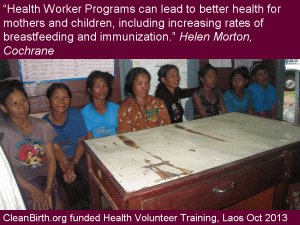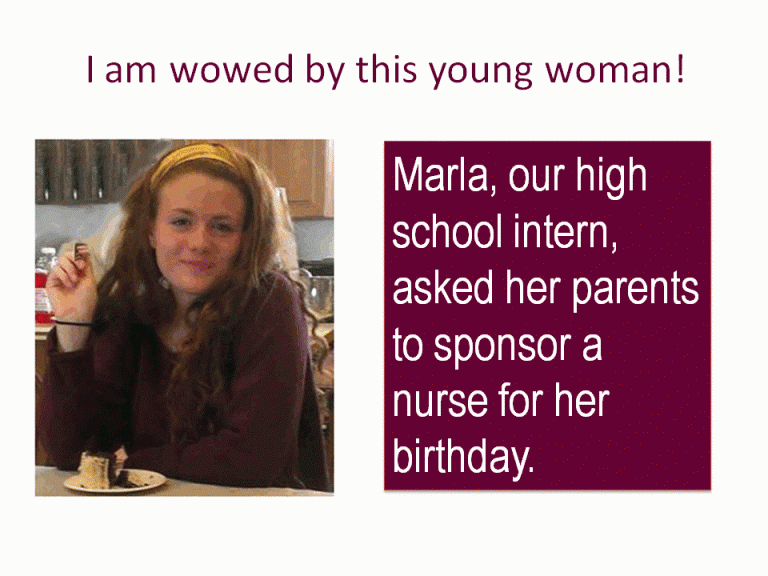
This week several items have got me thinking that we are on the right track to be training health volunteers in each community. However, instead of dreaming about a mobile phone in the hands of every health volunteer, we need to take a step back and ensure that they get the right training and support.
This week I watched a video about new WHO guidelines for “task shifting” from doctors and nurses to health workers. I also read this article about the about health worker training. Both made me think:
We need to make sure that we have a good plan for training and supporting the volunteer health workers, before we give them tangible supplies or cell phones.
A new article from Cochrane, looks at data from 50 qualitative studies of worldwide community health worker initiatives. They identify, according to Helen Morton of Cochrane, eight key factors that could help facilitate success:
1. Community connection: Selecting community health workers with local knowledge and from similar backgrounds to their patients.
2. Incentives: Introducing incentives that community health workers see as fair, consistent and appropriate.
3. Participation: Enabling families and communities to engage in deciding which health services will best meet their needs.
4. Training: Providing sufficient, high-quality and relevant training, including counseling and communication skills.
5. Working conditions: Ensuring a reasonable workload, manageable distances to cover and adequate supplies.
6. Integration: Encouraging clinics and the broader health system to recognise and engage community health workers, and nurses and other health professionals to develop better working relationships with them.
7. Low/no cost services: Delivering health care that is affordable for all.
8. Communication and support: Providing opportunities for community health workers to provide mutual support to one another and building channels for them to voice grievances.
 Please give CleanBirth.org cards this Holiday Season.
Please give CleanBirth.org cards this Holiday Season. rth safer for 3 moms and 3 babies.
rth safer for 3 moms and 3 babies.








 As I begin brainstorming about how to thank our donors this Thanksgiving, I want to give a special shout out to all of our volunteers who have made a huge difference!
As I begin brainstorming about how to thank our donors this Thanksgiving, I want to give a special shout out to all of our volunteers who have made a huge difference!
